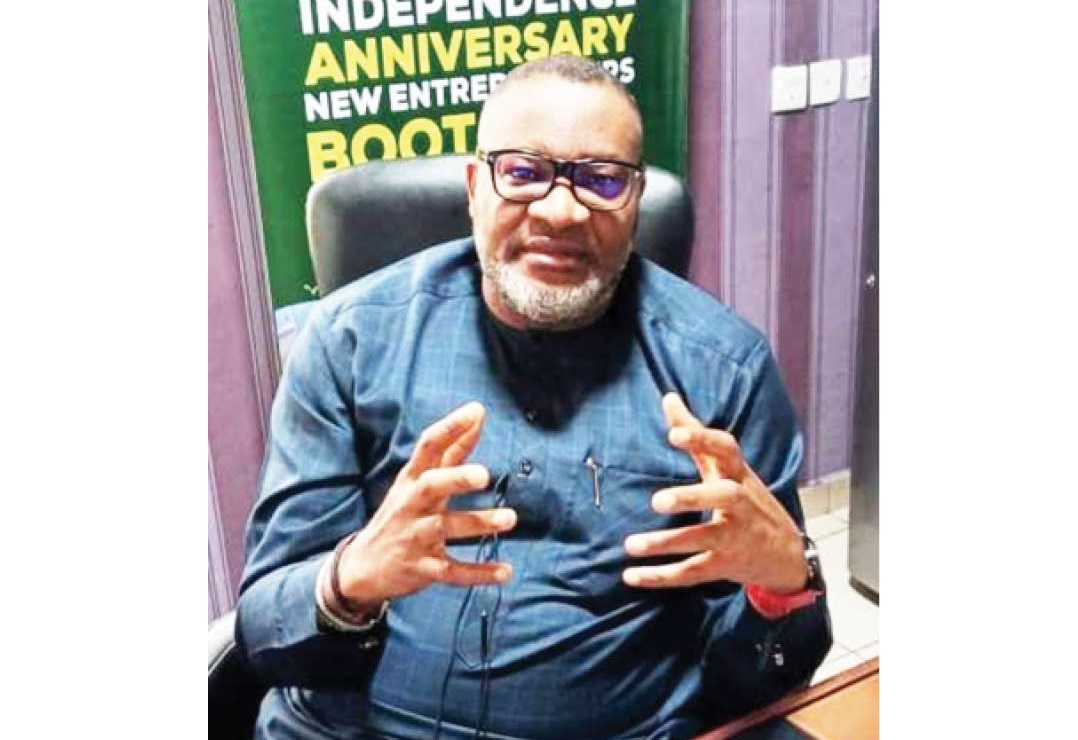‘Nigeria needs to do well in manure recycling, others’
Mr Abimbola Daramola is a former member of the House of Representatives and governorship candidate in the 2018 election in Ekiti State. He is also the chairman of Naija Green Card, as well as the convener of Project 60:60:60. In this interview with the Daily Trust on Sunday, he explained the various drives to create […]

Mr Abimbola Daramola is a former member of the House of Representatives and governorship candidate in the 2018 election in Ekiti State
Mr Abimbola Daramola is a former member of the House of Representatives and governorship candidate in the 2018 election in Ekiti State. He is also the chairman of Naija Green Card, as well as the convener of Project 60:60:60. In this interview with the Daily Trust on Sunday, he explained the various drives to create employment for the youth through agribusinesses.
Which area of agriculture are you prioritising with Project 60:60:60?
Agriculture has the capacity to absorb many jobless people. There is a research part of agriculture, animal husbandry and others. That may be basic, but the truth of the matter is: How can people go into the value chain? Where does the feedstock given to fish, goats, pigs and other animals come from? All of these are things we will be doing when this project eventually gets to a level where we will establish 37 entrepreneurship laboratories across the length and breadth of this country.
Everybody feels that this is just a joke, but for a sector that is being proven to take care of 90 per cent of all jobs, don’t you think we need to step back a little bit and have a clear agenda?
Most youths get discouraged when they hear the word agriculture, how do you intend to encourage them to get involved in the project?
At the boot camp, we will be doing a whole lot by breaking down what they do not know, for instance, how do you identify your market? How do you deal with institutional challenges that are limitations to your progress in that vocation that you have made up your mind to take? These are the things we will be doing at the boot camp. From there, the 60 people that will emerge from each of the six geopolitical zones will now be in a position to come face to face with personalities who have experiences in every area.
One of the greatest threats to security is lack of food, so we must go ahead and realise that we cannot fund consumption anymore. Our resources are challenged right now, and it’s about time to invest tangibly in production.
From this project, we expect that every month, we will train 1,000 people per state, so destination is known. There is no way we will train 1,000 people in different fields and won’t be able to harvest 500 out of them. And if they survive in each of the 36 states, including the Federal Capital Territory (FCT), we will have measurable outcome. If 500 entrepreneurs are raised and grown from every state monthly, the chances are that our economy will go all the way out.
The boot camp will be the first entry point, but the ultimate destination is that we must have these centres. It is not a job centre but entrepreneurship centre. We have not done enough with recycling in Nigeria. We can also recycle manure; the husk from maize is being neglected, no one is looking that direction, but that is business. Even the dung from animals goes into becoming manure for plants. No one is analysing the chemical contents coming from animal feaces.
Why did you come up with this project?
Project 60:60:60 is basically an agenda-setting initiative when the nation attains a milestone. It is time to introspect, reflect and project.
You will recall that the song in Nigeria has been diversification. But what people have not defined is what kind of diversification we are talking about. And how do we accomplish the diversification?
What the project does is to run for a decade so that we can have a measurable outcome. We can determine how many farmers have emerged from that initiative.
We believe that there is no other time to do this than when Nigeria will become 60; that’s one of the 60 you find there. The second 60 is to ensure that we raise 60 people with ideas, or people within 18 and 40 years who per chance have dreams, visions and determination, and are realistic to know that there are 39.4 million people who would be losing jobs between now and the time that will go to independence. So it becomes very imperative for them to identify very quickly.
The third 60 is that we will be working with our partners where the board of assessors will listen to their initiatives and be able to give them capital or business support funds from N60,000 to N1 million.
The decade starting from October 1, 2020 has significant appreciation of effort and agenda that is definable, that we can tangibly measure the outcome. That is why we have asked young people to register for the project on our website.
How do you intend to make this project unique?
We have tangibly added this project to Nigeria at 60 so that the milestone age will provide an opportunity for us to have different chapter of a different approach that is methodical and predictable. The entrepreneurship laboratories will also provide a tracking mechanism to ensure that the resources availed those people do not just end at naira and kobo, but resources of knowledge, expertise and experience. This will be the key that will unlock fortunes hidden inside entrepreneurship and enterprise in Nigeria.
